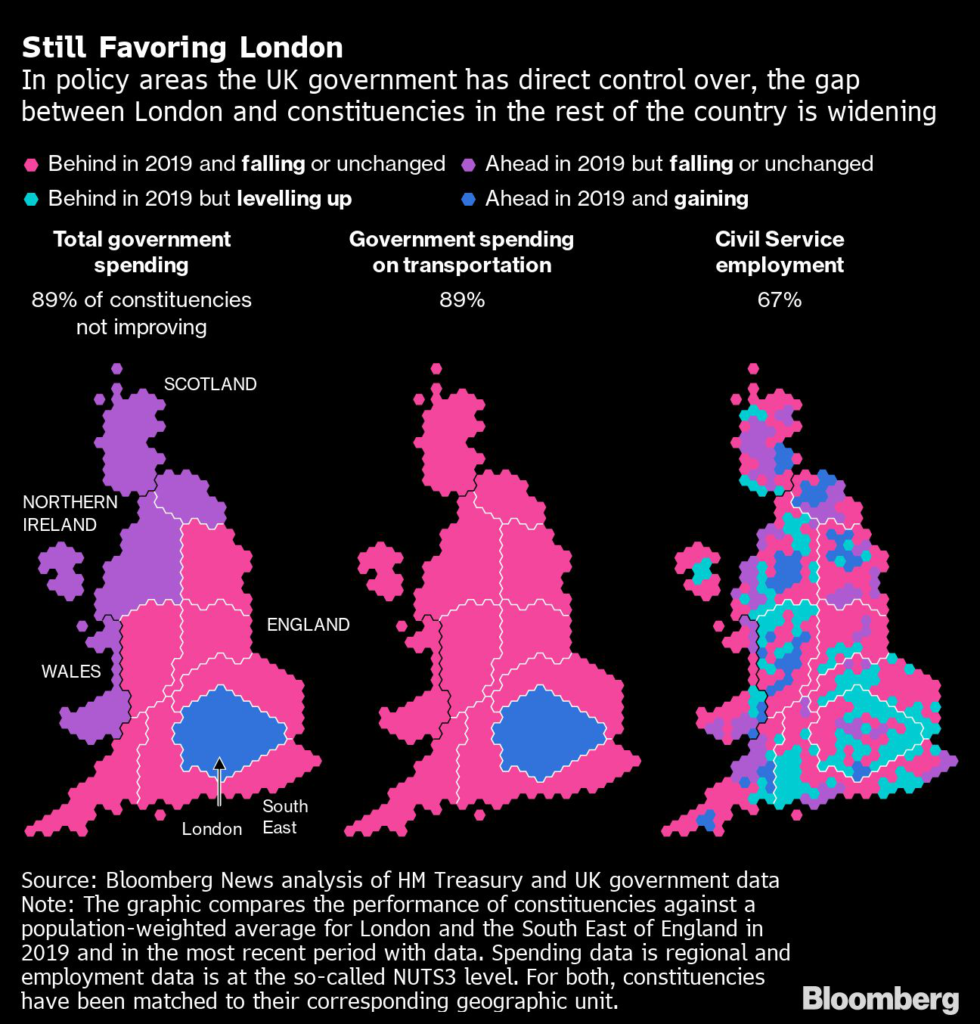(Bloomberg) — Sign up for the New Economy Daily newsletter, follow us @economics and subscribe to our podcast.
UK Chancellor of the Exchequer Rishi Sunak said he was unable to increase welfare benefits this year to protect the most vulnerable from the cost of living crisis because the government’s antique computer system would not let him.
Millions of pensioners and out-of-work households face hardship after benefits were increased just 3.1% in April, well below the current 7% rate of inflation and a long way off the double-digit levels expected later this year.
In an interview with Bloomberg TV, Sunak said IT problems had proved insurmountable. “The operation of our welfare system is technically complicated,” he said. “It is not necessarily possible to [increase benefits] for everybody. Many of the systems are built so it can only be done once a year, and the decision was taken quite a while ago.”
He acknowledged that blaming the technology “sounds like an excuse” but insisted he was “constrained somewhat by the operation of the welfare system.”
Plea for Help
Before Sunak’s Spring Statement in March, both the right-wing Centre for Policy Studies and the centre-left Resolution Foundation urged the chancellor to smooth the income hit by bringing forward some of the above-inflation welfare increase that claimants are on course to get next year.
Benefits are increased each April in line with the rate of CPI inflation in the previous September. It means they will rise by close to 10% next year just as inflation drops back towards 3%, on Bank of England forecasts.
Smoothing the path would have helped about 4.5 million working-age Britons with no job and on benefits, the group most exposed to the living standards squeeze as more of their income goes on basics like energy and food that are seeing rapid price rises.
Technical problems were most acute for the 2.6 million people on legacy benefits, which are still run on an IT system built in the 1980s and are being migrated to Universal Credit.
Changes to those benefits take around four months to implement. The system that administers payments for 12 million pensioners is even slower. However, there is little obstacle to raising benefits quickly for the 5.6 million people on Universal Credit.
A spokesman for the Department for Work and Pensions, which runs welfare, acknowledged that legacy benefits use “complex and inefficient paper-based systems that are slowed further by aging, inflexible IT.”
However, he appeared to contradict Sunak’s claim that the system can only be altered once a year, saying changes take “several months to process.”
Not Insuperable
Paul Johnson, director of the Institute for Fiscal Studies, said Sunak could have chosen to help those on Universal Credit regardless as he had done during the pandemic, when around 2 million people on legacy benefits did not receive equivalent support.
Torsten Bell, director of the Resolution Foundation, said: “The chancellor is right that it’s very difficult to change benefits outside the usual cycle, particularly for pensions. But these barriers can be overcome.”
In March, Sunak targeted his cost-of-living help largely at those in work with a £6 billion cut in payroll taxes and an increase in the minimum wage. The poorest got £350 of local authority tax and energy rebates alongside most other households.
A pot of money for the most vulnerable was increased by £500 million. Sunak told Bloomberg: “The best way to address cost of living is to get people into work.”
Separately, Sunak rejected the findings of Bloomberg’s “levelling up scorecard” that shows the gap between the South East and the rest of the country is growing on almost every measure.
“Those are different to the figures I looked at, where what I saw was a much stronger recovery in jobs and wages outside London and the South East,” he said. “We are very committed to levelling up.”
More stories like this are available on bloomberg.com
©2022 Bloomberg L.P.











